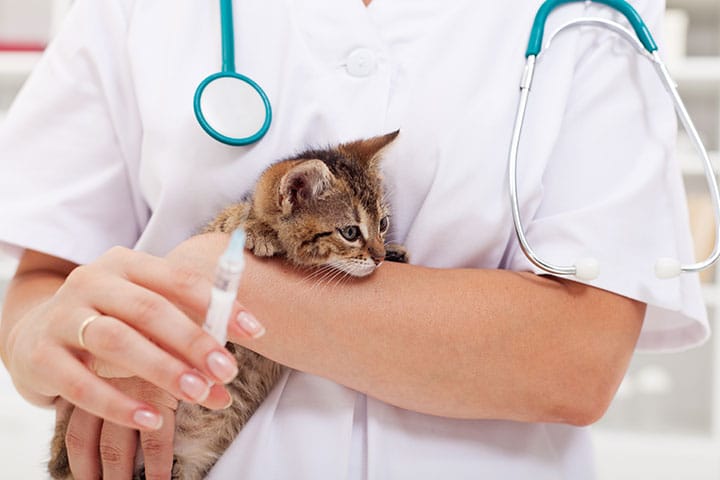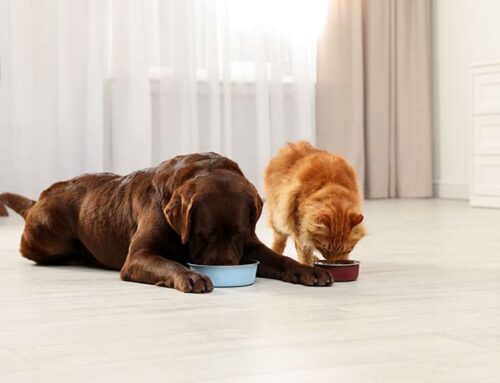Are Pet Vaccines Safe? Understanding Potential Side Effects
Top 3 Takeaways: Pet Vaccine Safety
Introduction: Addressing Vaccine Anxiety with Facts
When a pet owner asks us, “Are vaccines safe for my dog or cat?” we take the question seriously. As veterinarians, we understand the desire to protect your pet while also wanting to avoid unnecessary risks. There’s a lot of information—and misinformation—online, and as a result, some pet parents become hesitant about vaccines altogether.
At Bliss Animal Hospital, we’re here to give you a clear, evidence-based answer. The reality is that vaccines are among the safest and most effective medical tools in veterinary care. When administered properly, they help pets avoid devastating diseases like rabies, parvovirus, distemper, and feline leukemia.
Let’s take a closer look at how vaccines work, how safe they are, and how we approach individualized care in our Lake Forest clinic.
How Vaccines Work in the Body
A vaccine introduces a controlled exposure to a virus or bacteria—either inactivated (killed), attenuated (weakened), or in protein fragment form. This stimulates the immune system to recognize the disease without actually causing illness.
The body responds by producing memory cells and antibodies, which are “trained” to neutralize the pathogen if encountered again. This is how immunity is built—and it’s why vaccines are administered before a real-world exposure occurs.
The immune system is complex, but vaccines help simplify its job.
Safety of Pet Vaccines: What the Data Says
Veterinary vaccines are regulated by the USDA Center for Veterinary Biologics, which oversees testing for safety, efficacy, and purity. Before a vaccine ever reaches a veterinary clinic, it undergoes:
In general, the rate of serious adverse events from pet vaccines is less than 0.01%, according to multiple studies and surveillance reports.
That means 99.99% of pets have no serious complications. For the vast majority, vaccinations are not only safe—they’re life-saving.
Normal Vaccine Reactions vs. Adverse Events
After a vaccine, your pet’s immune system gets to work. That immune activity may produce minor side effects, which are normal signs of immune engagement, not danger.
Mild, Common Side Effects (24–48 hours):
These typically resolve within a day or two with no treatment needed. You can offer water, soft food, and a quiet space for rest.
Red Flags: Rare Adverse Events
Occasionally, pets experience an allergic or hypersensitivity reaction. These reactions usually occur within 1–2 hours after vaccination and may include:
This is an emergency and should be treated immediately. At Bliss, we keep antihistamines, corticosteroids, and epinephrine on hand for rapid intervention—but such cases are extremely rare.
Are Certain Pets More Prone to Vaccine Reactions?
Yes, a few factors can increase sensitivity:
We consider all of this when building your pet’s vaccine protocol.
What We Do to Keep Your Pet Safe
At Bliss Animal Hospital, we don’t follow a one-size-fits-all approach. Here’s how we reduce risk and improve outcomes:
Your pet’s safety is our priority every step of the way.
What If My Pet Has Had a Vaccine Reaction Before?
If your pet had a mild or moderate vaccine reaction in the past, that doesn’t necessarily mean they should stop receiving vaccines altogether. Instead, we may:
We may also report the incident to the USDA if appropriate. Transparency and tracking help improve future formulations and guidelines.
Should I Be Worried About Over-Vaccinating?
This concern has led to misinformation online. The truth is: modern veterinary protocols are built around minimizing unnecessary vaccination.
Core vaccines (like rabies, DHPP, FVRCP) are typically given every three years after the initial series. Non-core vaccines are evaluated annually based on lifestyle.
For pets with autoimmune conditions or serious vaccine sensitivities, we may also use vaccine titer testing—a blood test to measure existing antibody levels and determine whether a booster is needed.
The Risks of Not Vaccinating
While vaccine hesitancy is understandable, the consequences of avoiding vaccines can be devastating. Unvaccinated pets are at risk for:
Skipping vaccines doesn’t just endanger your pet—it can also endanger others.
Final Thoughts: The Smart, Safe Choice
Pet vaccines are safe, scientifically proven, and one of the best investments you can make in your pet’s health. At Bliss Animal Hospital, we treat every vaccine appointment as a personalized health consultation—not just a procedure.
Whether you’re starting a puppy series or managing care for an older pet, we’ll walk you through the options, risks, and benefits—so you can make confident decisions backed by veterinary guidance.
Book Your Pet’s Vaccine Appointment Today
Protect your pet with safe, expert-administered vaccines in Lake Forest, CA.
Schedule Online or call (949) 354-5201
Dog Vaccination Services in Orange County, CA
Cat Vaccination Services in Orange County, CA
What your neighbors are saying!
Areas we Serve at Bliss Animal Hospital:
“Better Care. Better medicine.” This is our motto, and our veterinary staff stands behind it.
Bliss Animal Hospital is conveniently located at the Home Depot Plaza in Foothill Ranch, less than a 10-minute drive from the neighborhoods of Lake Forest, Rancho Santa Margarita, Mission Viejo, and Irvine (Great Park and Portola Springs). We also serve more distant regions like Tustin, Coto de Caza, Las Flores, Ladera Ranch, Laguna Hills, Laguna Woods, Stonegate (Irvine), Woodbury (Irvine), and Cypress Village (Irvine).
Our vet hospital is ready to serve not only the communities of South Orange County but also anyone who truly believes that veterinary medicine starts with relationships.











Leave A Comment